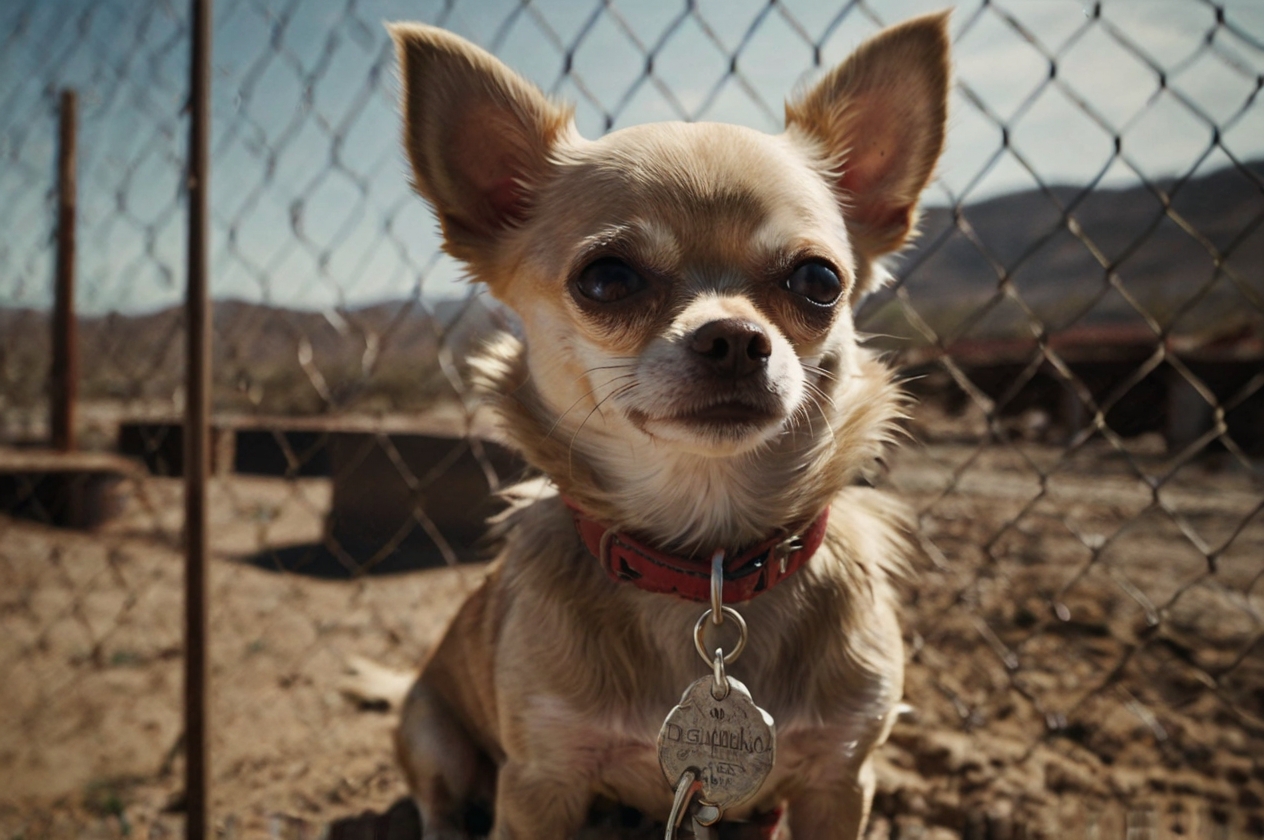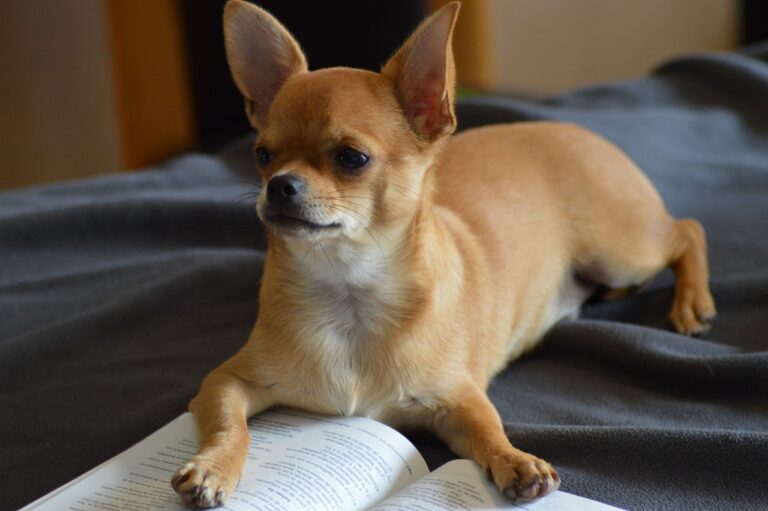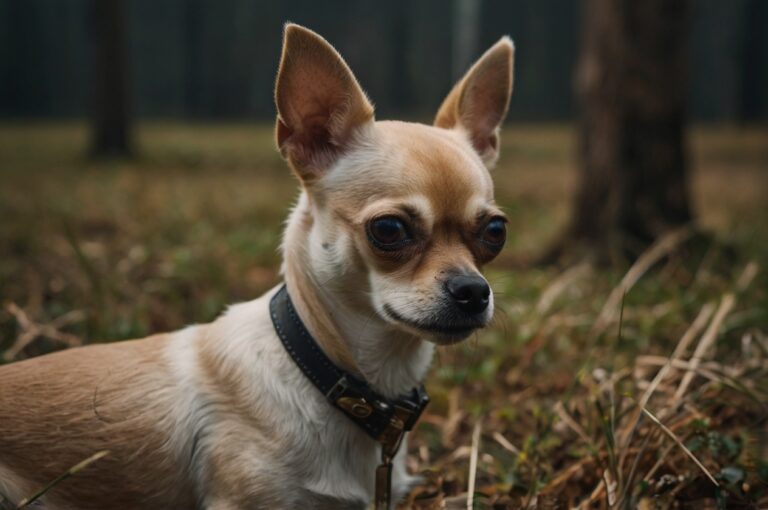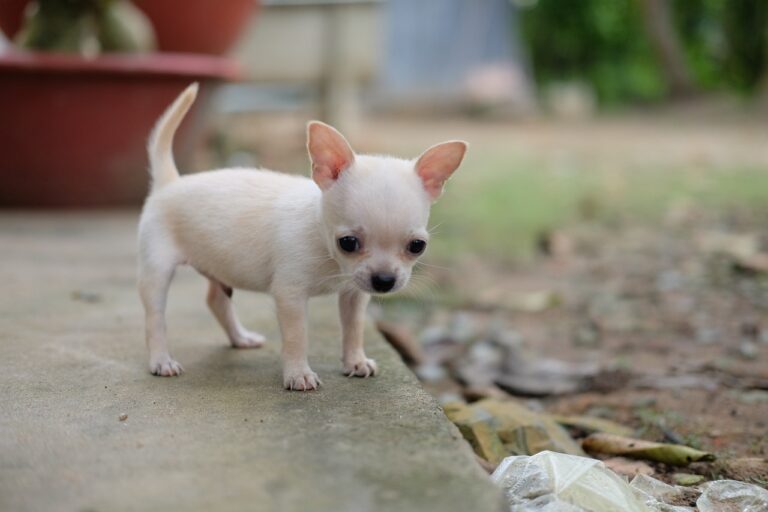Caring for Chihuahua Rescue Dogs: A Comprehensive Guide

Key Takeaways:
- Chihuahua rescue dogs often require extra patience and understanding due to their previous experiences. Providing a stable environment is key to helping them thrive.
- Socialization and training are important for building trust and confidence in rescued Chihuahuas, helping them adapt to their new home and overcome any fears.
- Rescue Chihuahuas can have unique challenges, but with proper care, love, and consistency, they can become loving and loyal companions.
1. Understanding the Needs of Chihuahua Rescue Dogs
Chihuahua rescue dogs can come from a variety of backgrounds, and understanding their unique needs is crucial for providing proper care. These small dogs may have experienced neglect, abuse, or abandonment, which can affect their behavior and how they respond to new environments.
1.1 Emotional Needs of Rescue Chihuahuas
Rescue Chihuahuas often have emotional needs that differ from those of dogs raised in stable homes. Many rescue dogs have faced trauma, neglect, or a lack of socialization, which can lead to anxiety or fear-based behaviors. It is important to be patient and provide a calm and secure environment to help them adjust.
One of the best ways to address the emotional needs of a rescue Chihuahua is through gentle, consistent routines. Predictable daily activities can help reduce anxiety and make them feel more secure. Providing a designated safe space where they can retreat if they feel overwhelmed is also beneficial.
1.2 Building Trust and Bonding
Building trust with a Chihuahua rescue dog takes time and effort. Trust-building is a gradual process that requires consistency and positive reinforcement. Start by allowing the dog to come to you on their own terms, without forcing interaction. Respecting their space is crucial, as some rescue dogs may initially be fearful of physical contact.
Using treats and praise can help build a positive association with you. Rewarding desired behaviors with treats or affection helps the Chihuahua learn that they are safe and can trust you. Bonding activities such as gentle play, quiet time together, and short, positive walks can also help strengthen your relationship over time.
1.3 Recognizing Behavioral Challenges
Chihuahua rescue dogs may exhibit behavioral challenges such as fearfulness, barking, or avoidance. Understanding that these behaviors are often a result of their past experiences can help you approach training and care with empathy. It is important not to punish a rescue dog for behaviors related to anxiety or fear.
Instead, use positive reinforcement techniques to encourage calm behavior. For example, if your Chihuahua tends to bark out of fear, redirecting their attention with a toy or treat can help break the cycle of anxiety. Working with a professional dog trainer who specializes in rescue dogs can also be helpful in addressing specific behavioral challenges.
| Need | Description | How to Address |
|---|---|---|
| Emotional Support | Trauma, anxiety, fear-based behaviors | Create a calm, predictable environment |
| Trust and Bonding | Establishing trust with new owners | Use treats, gentle play, respect boundaries |
| Behavioral Challenges | Fearfulness, barking, avoidance | Positive reinforcement, redirecting focus |
2. Creating a Comfortable Environment

Providing a comfortable and stable environment is essential for helping a Chihuahua rescue dog feel safe. The environment should be designed to cater to their physical comfort as well as their emotional well-being.
2.1 Setting Up a Safe Space
A safe space is a dedicated area where your Chihuahua can retreat whenever they feel overwhelmed or anxious. This space should be quiet and away from high-traffic areas of your home, providing a sense of security. A comfortable dog bed, soft blankets, and a few favorite toys can help make the space feel inviting.
It is important that this space is always accessible, allowing the Chihuahua to choose when they want to rest or feel secure. Avoid disturbing them when they are in their safe space, as this is meant to be a retreat where they can relax without fear or pressure.
2.2 Minimizing Stress Triggers
Rescue Chihuahuas can be sensitive to stress triggers, such as loud noises, sudden movements, or unfamiliar people. Identifying and minimizing these stressors can help your Chihuahua feel more comfortable. Use calming aids such as white noise machines or gentle background music to help drown out sudden noises that may scare them.
Introducing new experiences gradually and in a controlled manner can also help reduce anxiety. For example, if your Chihuahua is fearful of strangers, introduce them to new people one at a time in a calm and controlled setting, ensuring that all interactions are positive.
2.3 Routine and Predictability
Routine and predictability are key components of making a rescue Chihuahua feel secure. Establishing regular feeding times, walks, and play sessions can help them understand what to expect throughout the day. This predictability helps reduce anxiety and fosters a sense of stability.
Rescue Chihuahuas often thrive when they know what is coming next. Keeping mealtimes, bathroom breaks, and bedtime consistent allows them to adapt more easily to their new environment. Over time, this routine will help them feel more confident and comfortable in their daily life.
3. Training and Socialization for Rescue Chihuahuas

Training and socialization are important aspects of helping a rescue Chihuahua adapt to their new home and become well-behaved companions. These activities help build confidence and reduce fear-based behaviors.
- Positive Reinforcement Training: Training a rescue Chihuahua should always involve positive reinforcement techniques. Rewarding desired behaviors with treats or praise encourages them to repeat those behaviors. This approach is especially important for rescue dogs, as they may have experienced negative treatment in the past.
- Socialization with People: Socializing a rescue Chihuahua with people can be challenging, especially if they have had negative experiences. Start by introducing them to one or two trusted individuals in a calm setting. Gradually increase the number of people they meet, ensuring all interactions are positive and at the dog’s pace.
- Socialization with Other Dogs: Some rescue Chihuahuas may be fearful or aggressive toward other dogs. Introducing them to other dogs should be done slowly and in a controlled environment. Use leashes and keep initial meetings short to avoid overwhelming your Chihuahua. Positive experiences with other dogs can help improve their social skills over time.
3.1 Positive Reinforcement Training
Positive reinforcement training is a powerful tool for teaching rescue Chihuahuas new behaviors and commands. This method involves rewarding your dog for desired behaviors, such as sitting calmly or coming when called. Rewards can include treats, toys, or verbal praise.
Rescue Chihuahuas may have experienced punishment or harsh training methods in the past, which can make them fearful or distrustful. Positive reinforcement helps build a trusting relationship and encourages your dog to engage willingly in training sessions. Keep training sessions short and end on a positive note to keep your Chihuahua motivated.
3.2 Socializing with People
Socializing a rescue Chihuahua with people requires patience and a gentle approach. Start by introducing them to one person at a time, preferably someone who is calm and experienced with dogs. Allow the Chihuahua to approach at their own pace and avoid forcing interactions.
If the Chihuahua shows signs of fear, such as cowering or barking, give them space and try again later. Each successful social interaction should be rewarded with praise or a treat to help them develop positive associations with meeting new people.
3.3 Socializing with Other Dogs
Socializing with other dogs can be a challenge for rescue Chihuahuas, especially if they have had negative experiences in the past. Start by introducing your Chihuahua to another calm, well-socialized dog in a neutral location. Keep both dogs on leashes and allow them to sniff each other without pressure.
If the interaction goes well, you can gradually increase the time they spend together. Always supervise interactions to ensure they remain positive. Positive social experiences with other dogs can help your Chihuahua build confidence and reduce fear or aggression.
| Training Method | Description | Benefits |
|---|---|---|
| Positive Reinforcement | Reward-based training | Builds trust, encourages desired behavior |
| Socializing with People | Gradual introductions to new people | Reduces fear, builds confidence |
| Socializing with Dogs | Controlled introductions to other dogs | Improves social skills, reduces anxiety |
4. Health and General Care Tips for Rescue Chihuahuas

Taking care of a rescue Chihuahua’s health is essential for their overall well-being. Proper grooming, exercise, and emotional care are key aspects of maintaining their health.
4.1 Grooming Needs
Grooming is an important part of caring for a rescue Chihuahua. Regular brushing helps keep their coat healthy and free of tangles. Smooth-coated Chihuahuas should be brushed once a week, while long-coated Chihuahuas may need brushing several times a week to prevent matting.
Bathing should be done every 3-4 weeks or as needed, using a gentle dog shampoo. Pay attention to their nails and trim them regularly to prevent discomfort while walking. Grooming sessions can also be an opportunity to bond with your Chihuahua, as the gentle handling helps build trust.
4.2 Exercise Requirements
Exercise is important for keeping a rescue Chihuahua physically healthy and mentally stimulated. Short, gentle walks are ideal, as Chihuahuas have small frames and are prone to joint issues if overexerted. Aim for two short walks per day, along with some indoor playtime to keep them active.
Avoid strenuous activities, such as jumping or running long distances, as these can be hard on their joints. Providing opportunities for mental stimulation, such as puzzle toys, can also help keep their minds active and reduce boredom.
4.3 Emotional Care
Providing emotional care is crucial for rescue Chihuahuas, as many have experienced trauma or neglect. Spending quiet time together, offering gentle affection, and maintaining a consistent routine can help them feel safe and loved. Avoid sudden changes in their environment, as this can cause anxiety.
It is also important to be patient and understanding when dealing with behavioral issues. Remember that rescue Chihuahuas may need extra time to adjust, and their progress may be slow. Celebrate small victories and continue to provide the support they need to thrive.
5. Wrap Up
Caring for a Chihuahua rescue dog requires patience, empathy, and dedication. By understanding their emotional needs, creating a stable environment, providing proper training and socialization, and addressing their health and grooming needs, you can help your rescue Chihuahua thrive in their new home. Rescue Chihuahuas may come with unique challenges, but with love and consistency, they can become loyal and loving companions.
Frequently Asked Questions (FAQ)
What is the best way to build trust with a rescue Chihuahua?
The best way to build trust is through patience, consistency, and positive reinforcement. Allow the dog to come to you at their own pace without forcing interactions.
How do I help my rescue Chihuahua adjust to a new home?
Create a stable environment with a designated safe space, establish a routine, and avoid overwhelming them with too many new experiences at once.
What are common behavioral issues in rescue Chihuahuas?
Common issues include fearfulness, barking, and avoidance. These behaviors are often linked to past trauma and can be managed with positive reinforcement and patience.
How can I socialize my rescue Chihuahua with other dogs?
Introduce them to calm, well-socialized dogs in a neutral environment. Keep interactions short and positive, rewarding your Chihuahua for calm behavior.
What should I do if my rescue Chihuahua is fearful of strangers?
Introduce new people slowly and allow the Chihuahua to approach at their own pace. Use treats and praise to create positive associations with meeting new people.






